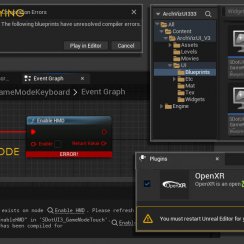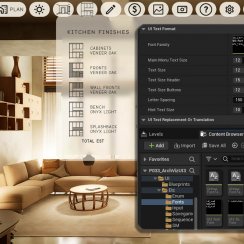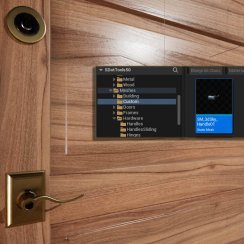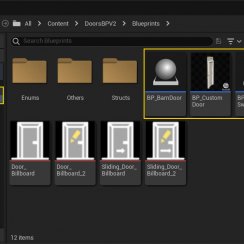Pages in Documentation

Settings

UI3 Overview

[old] Doors UE5

Quick Start

Swap Actor

Custom Assets

System Drawings

Step by Step

Tips & FAQ

Settings

Multi-Unit-Prj

Google Data Sheets

Data Tables

Video Guides

Quick Videos

Designer

Cost Tracking

Widget Panels

Quick Guide

Scene Settings

Connect BP

VR projects

Version History

F. w. Preview

Fix Known Bugs

UI Settings

UI Layout

Gamemode

FAQ + TIPS

V4 Functions 2

V4 Functions P1

V4 Quick Guide

Ver History

V3 Placements

V3 Mesh Def.

V3 Segments

V3 Quick Start

Books V2

Books V1

Customize

Quick Guide

Swap Actor

FAQ + TIPS

Doors UE4 (V1)

3.1 Bugs Fixes

Ver History
![[2 A] Generic Meshes On Spline Blueprint ../images/architecture/0023/v2-generic/thumbs/01.jpg](../images/architecture/0023/v2-generic/thumbs/01.jpg)
V2 Generic BP
![[2 B] Generic Spline Blueprint Examples ../images/architecture/0023/v2-examples/thumbs/01.jpg](../images/architecture/0023/v2-examples/thumbs/01.jpg)
V2 Examples
![[1] Railings Clone Blueprint Documentation ../images/architecture/0023/v1/thumbs/01.jpg](../images/architecture/0023/v1/thumbs/01.jpg)
V1 Railings Fences

UI 1 - Part 1

UI 1

Ui 1 - Part 2

1 Overview

UI2 Features

UI2 Get Started

UI2 Info Map

UI2 BP Actors

UI2 User Manager

UI2 FAQ

UI2 Tutorials

UI3 Overview

Getting Started

3.1 Info Map

Variation Actor

Blueprints
UI3 User Interface - Before March 2023
Documentation for ArchViz User Interface 3. Major Versions:
- 3.2 - From April 2023 onwards. Modular Panel Design.
- 3.1 - For all versions up to March 2023
- UI3 - Those are more or less the same for all versions
Content:
Introduction Video - Version History
Introduction Video - Version History
This is a short feature video from Version 3.1. It will be updated soon.Version History
UI3 is the initial version. It had most features. Support for Gamepad, Touch and VR where added with minor updates.
UI3.15 (04/22) was updated for the release of Unreal 5. A cinematic camera was added, as well as visual improvements
UI3.2 (03/23) is a major update with focus on modular interface design, as well as giving the possibility to translate everything into a different language within the Info Map.
Get Started
This part explains- how to get UI3 from the marketplace
- how to get the UI into your project, or how to create the demo project
- The initial setup within a new project
- About levels and sub levels (briefly)
- Post process volumes and render settings (briefly)
- How to start adding data for your project

Info Map, Variation and Location Actors
The Info Map is a blueprint that needs to be placed into your main (persistent) level. All project specific data (customization) will be added into this blueprint instance in your scene. It will then be passed on to the interface when you run the application (play).The Info Map can hold an architectural drawing for each floor, that can be aligned to the geometry in the scene. This can help with placing the furniture, doors or other objects, and it gives an interactive representation of the scene in the UI.
Variation Actors are placed near any object that requires changes. Material changes (e.g. carpet, tiles, or parkette) and object changes (e.g. gas, or induction cooktop, or different types of dining chairs) or possible.
Location Actors can quickly move the player (client) to predetermined position within the scene.

Game Modes
The game mode defines how the interface and movement in the scene can be controlled. There are three game modes available- Keyboard and mouse
- Touch
- Gamepad or another game controller
- VR with gamepad or VR controller

Frequently Asked Questions
The interface is made with people in mind who don't have extensive Unreal knowledge and are fairly new to it. Knowing what a blueprint is will help, but you don't need to know much about how blueprints work to use this product.Some knowledge however is needed to use this product. You need to know what a level is, how to place and move actors around, how to setup rendering and lighting in your scene. You also need to know how to import assets into Unreal, with or without Datasmith or Quixel.
Frequently asked questions are answered in this section. Common little problems that you might run into while working with UI3. Or tips and tricks to get things done that aren't obvious to solve.

Bugs And How To Fix Them
This is a complex product. I'm trying to sincerely test every release as much as I can. But sometimes a little bug can creep in.In this section you'll find problems that are known, and how to fix them, if possible, until an update is available.

 Top of page
Top of page UI3 Get Started
UI3 Get Started